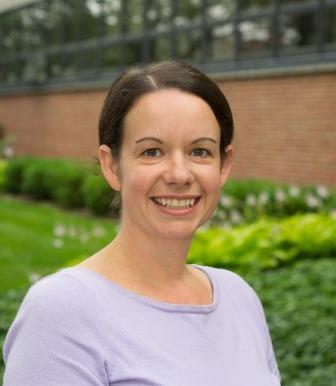Addressing Student Concerns through Circle Processes
Duration: 1 hour
Facilitator: Carrie Landrum
Price: $50.00
Overview:
Many colleges and universities are challenged in figuring out how to best support students in today’s unique and challenging climate. Our students face white supremacists showing up on campus or in their news feeds, the challenge of understanding the importance of free speech when they want to be protected from harm (like from the impact of bias), the psychological impact of national or global events, and the challenge of simply having respectful conversations with those who disagree with their opinions -- all while still emerging as adults.
For many, there is a disconnect as students are clamoring for emotional support in a context known for intellectualizing and emotional-distancing. Many administrators are at a loss in identifying ways to support students who are demanding more action from their institutions. Some institutions create systems to respond to issues when an empathetic human response may be needed.
Here's where Circle Processes come in – a simple and powerful tool that can be implemented just about anywhere by anyone. Circle Processes are a form of Restorative Justice that by design and function create containers for the healthy expression of emotion, and allow participants to connect on a deeper level across their shared humanity. Circle Processes move people from diatribe and debate to a dialogue that emphasizes deep listening as well as sharing and problem-solving. This webinar provides a brief overview of how Circle Processes might be used to address a wide range of issues on your campus, including: bias incidents, campus climate concerns, conflicts within residential communities, interpersonal conflicts, student organization and/or athletic team dynamics, conduct code violations, academic cohort dynamics, national incidents that impact students and the greater community, and more. As a Restorative Practice, Circles generally support the building of trust, the strengthening of relationships, and the collaborative identification of creative solutions to complex problems. When used timely, intentionally, and thoughtfully, Circle Processes have enormous transformative potential!
Brief outline:
- Brief Overview of the Philosophy of Restorative Justice
- Brief Overview of the Continuum of Restorative Practices
- Brief Overview of the Historical Origins and Contemporary Use of Restorative Practices
- Key Elements of a Circle Process
- Value and Utility of Circles Processes
- Best Practices for Facilitating Circles
- Examples of Circles on a College Campus
- Q&A
Learning outcomes:
Participants will be able to:
- Conceptualize the philosophy of restorative justice and the continuum of restorative practices
- Identify the historical and contemporary use of restorative practices
- Recognize the key elements of a circle process
- Comprehend the value and wide utility of circle processes
- Learn best practices for facilitating circles effectively
- Hear concrete examples of how restorative practices have been used with university students, staff and faculty
- Receive guidance relevant to unique contexts through Q&A
Who should attend:
This webinar is relevant to student affairs professionals who work with students, period. Professionals from a wide variety of contexts may likely find value in this webinar, including those who work in:
- residence education
- athletics
- advising
- student organization advising
- student conduct
- diversity, equity and/or inclusion contexts (i.e. supporting students around identities)
- administration
Presenter biography:
 Carrie Landrum, M.A., has been coordinating and facilitating Restorative Justice Circles for over ten years at the University of Michigan. She has studied the skillful facilitation of circle processes in 100 hours of training under Howard Zehr, Kay Pranis, Lorraine Stutzman Amstutz, Nancy Schertzing, the International Institute for Restorative Practices, and others. As Assistant Director in the Office of Student Conflict Resolution and a member of the Bias Response Team at the University of Michigan, Carrie regularly consults with students, staff, and faculty facing a wide range of campus concerns, and designs and facilitates processes to address them. Carrie also trains and presents nationally on the philosophy and practice of restorative justice practices.
Carrie Landrum, M.A., has been coordinating and facilitating Restorative Justice Circles for over ten years at the University of Michigan. She has studied the skillful facilitation of circle processes in 100 hours of training under Howard Zehr, Kay Pranis, Lorraine Stutzman Amstutz, Nancy Schertzing, the International Institute for Restorative Practices, and others. As Assistant Director in the Office of Student Conflict Resolution and a member of the Bias Response Team at the University of Michigan, Carrie regularly consults with students, staff, and faculty facing a wide range of campus concerns, and designs and facilitates processes to address them. Carrie also trains and presents nationally on the philosophy and practice of restorative justice practices.
